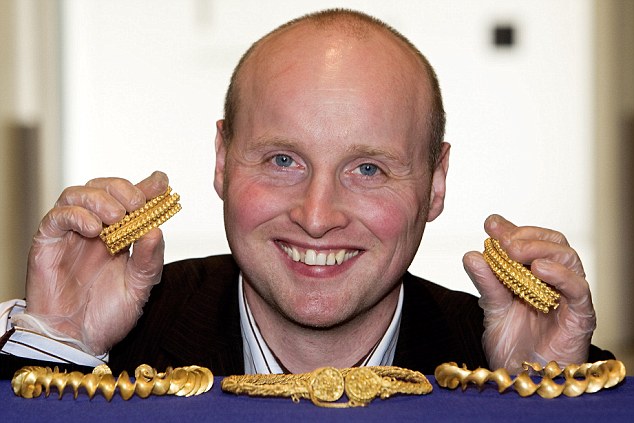David Booth, was 35 year old man from Stirlingshire looking for a new hobby. Split between Badminton and Treasure seeking he ends up buying himself a metal detector. On his very first outing with the device, he got out of the car and took exactly 7 steps (lucky number) away from the car when the beeping began. Exciting as it was that the machine had detected something, he didn’t get his hopes too high, its was bound to be some rubble, it had to be… Except, it wasn’t! he found 4 gold necklaces from the 1st and 3rd century BC!
Under the treasure trove rules the crown can claim any archeological objects found in Scotland. Finders have no ownership and need to report their finds to Scotland’s treasure trove unit. However, as it’s usually the case, he received a reward equal to the market value of the find. He found them at his place of work the Drummond Safari Park in Stirlingshire back in 2009. The exact amount hasn’t been disclosed but its thought to have 7 figures.
Besides being a great story, this find had a huge archeological impact as it revealed that the Scottish tribes were not as isolated as they were once thought. The intricacy of the necklaces combines elements of local and Mediterranean craftsmanship. This means that the people of Scotland at the time were in contact with other European celts. This was the most significant find in over a century.

David Booth may well be the luckiest treasure hunter in history. Here at Edinburgh Treasure Hunts we surely give our hunters a harder time if they want to get results. But what we strive to recreate is the sense of wonder, excitement and achievement that all treasure hunt successes have in common.
